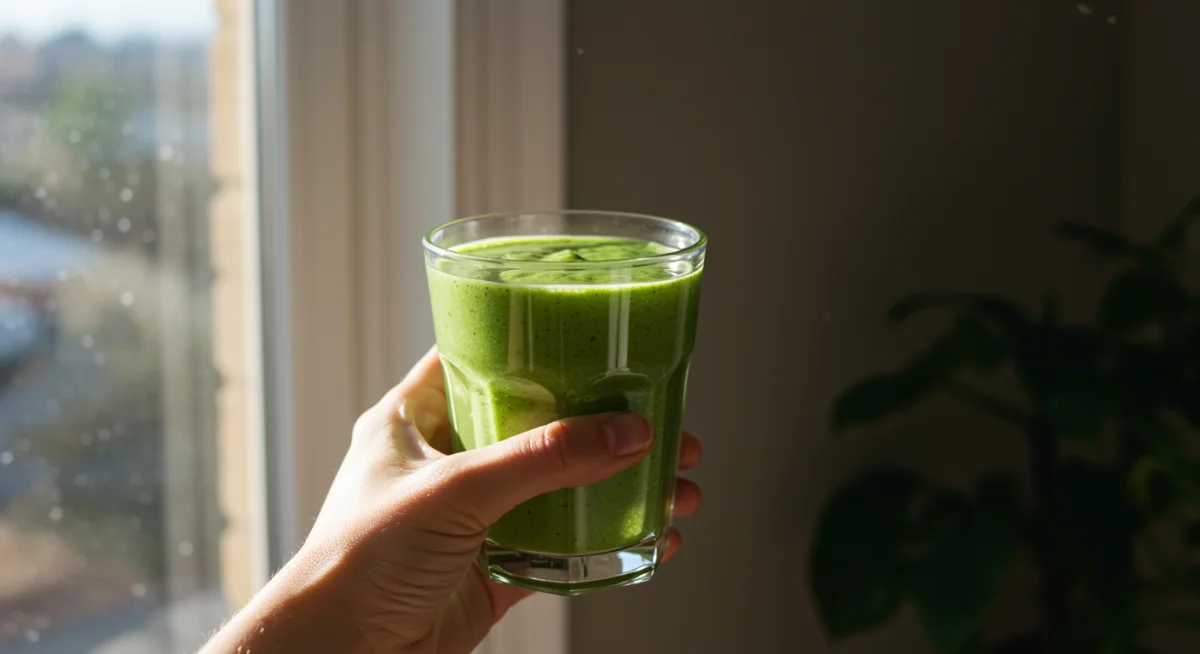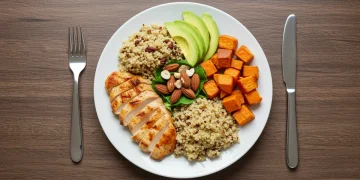Hydration Beyond Water: 6 Nutritional Beverages for 2025

Optimizing daily fluid intake involves considering six specific nutritional beverages that extend beyond simple water, delivering vital nutrients for enhanced health and well-being in 2025.
In the quest for optimal health, the conversation around hydration has evolved far beyond just drinking plain water. While water remains fundamental, the year 2025 brings a sharper focus on nutritional hydration drinks that offer a multitude of benefits, from electrolyte balance to enhanced cognitive function. It’s about choosing beverages that not only quench thirst but actively contribute to your overall well-being.
Coconut water: nature’s electrolyte powerhouse
Coconut water, often dubbed nature’s sports drink, is a clear liquid found inside young green coconuts. It naturally contains easily digestible carbohydrates in the form of sugar and electrolytes such as potassium, sodium, and manganese. This makes it an excellent choice for rehydration, particularly after physical activity or during hot weather.
Unlike many commercial sports drinks, coconut water is typically free from artificial flavors, colors, and added sugars, offering a purer source of hydration. Its natural composition supports the body’s fluid balance without unnecessary additives.
Electrolyte replenishment and benefits
The primary appeal of coconut water lies in its rich electrolyte profile. Potassium, in particular, is abundant, playing a crucial role in maintaining fluid balance, nerve signals, and muscle contractions. This makes it superior to plain water for specific rehydration needs.
- High in potassium: essential for cellular function and preventing cramps.
- Natural sugars: provide quick energy without the crash associated with refined sugars.
- Antioxidant properties: helps combat oxidative stress in the body.
- Low in calories: a healthier alternative to sugary juices or sodas.
Beyond its hydrating properties, coconut water also contains small amounts of calcium and magnesium, further contributing to bone health and muscle function. It’s a versatile beverage that can be enjoyed on its own, mixed into smoothies, or used as a base for refreshing mocktails.
Choosing unsweetened, pure coconut water is key to maximizing its health benefits. Always check labels to ensure no hidden sugars or artificial ingredients have been added. Its natural sweetness and subtle flavor make it a palatable option for many.
Herbal infusions: therapeutic hydration
Herbal infusions, commonly known as herbal teas, are not just comforting warm drinks; they are powerful sources of hydration packed with therapeutic compounds. Unlike traditional teas derived from the Camellia sinensis plant, herbal infusions are made from various dried flowers, fruits, herbs, and spices, each offering unique health benefits.
From calming chamomile to invigorating peppermint, these beverages provide a gentle yet effective way to hydrate while delivering specific wellness advantages. They can be consumed hot or cold, making them adaptable to any season or preference.
Diverse benefits of herbal teas
The variety of herbal infusions means there’s a remedy for almost every need. Many herbs boast anti-inflammatory, antioxidant, and digestive aid properties, making them valuable additions to a daily hydration routine. They offer a flavorful escape from plain water without adding calories or artificial ingredients.
- Chamomile tea: promotes relaxation and sleep quality.
- Peppermint tea: aids digestion and relieves nausea.
- Ginger tea: reduces inflammation and soothes upset stomachs.
- Hibiscus tea: rich in antioxidants and may help lower blood pressure.
Preparing herbal infusions is simple: just steep the dried herbs in hot water for several minutes. The longer the steeping time, the stronger the flavor and the more potent the medicinal properties. Many people find the ritual of preparing and sipping herbal tea to be a calming and mindful practice.
For those looking to reduce caffeine intake, herbal infusions are an excellent alternative. They offer a comforting warmth or refreshing coolness without the stimulating effects of caffeine. Experimenting with different blends can help you discover new favorites and tailor your hydration to your specific health goals.
Electrolyte-infused fruit juices: smart rehydration
While whole fruits are always preferable, certain electrolyte-infused fruit juices can serve as a beneficial option for smart rehydration, especially when diluted. These beverages combine the natural sweetness and vitamins of fruit with added electrolytes, helping to replenish what the body loses through sweat.
The key is to choose juices that are 100% fruit juice, without added sugars, and then to dilute them with water. This approach reduces the sugar concentration while still providing a palatable and nutrient-rich hydrating option. It’s a practical solution for those who find plain water unappealing.

Optimizing juice for hydration
Not all fruit juices are created equal when it comes to hydration. Opt for juices known for their electrolyte content, such as orange, cherry, or watermelon. Diluting these juices by at least 50% with water significantly reduces their sugar load, making them more appropriate for consistent hydration.
- Watermelon juice: contains citrulline, which may aid muscle recovery, and natural electrolytes.
- Orange juice: a good source of potassium and vitamin C.
- Tart cherry juice: known for its anti-inflammatory properties and melatonin content.
- Dilution strategy: mix equal parts juice and water to cut down on sugar while retaining flavor.
It’s important to remember that even diluted fruit juice should not replace plain water as your primary source of hydration. Instead, consider it a supplementary beverage for specific situations, such as post-exercise recovery or when you need a boost of flavor and nutrients. Always prioritize whole fruits for fiber and a more complete nutritional profile.
When selecting electrolyte-infused fruit juices, examine the ingredient list carefully. Look for brands that prioritize natural ingredients and avoid high-fructose corn syrup or artificial sweeteners. Homemade versions, where you control the ingredients, are always the best choice for purity and nutritional value.
Plant-based milks: creamy nourishment
Plant-based milks have transcended their role as mere dairy alternatives to become significant contenders in the nutritional beverage landscape. Varieties like almond, oat, soy, and cashew milk offer not just hydration but also a good source of vitamins, minerals, and sometimes protein. They provide a creamy texture and often a subtle sweetness that makes them enjoyable for many.
These milks are fortified with essential nutrients such as calcium, vitamin D, and B12, which are crucial for bone health and energy metabolism, especially for those following plant-based diets. They represent a versatile option for adding nutritional value to your daily fluid intake.
Choosing the right plant milk
The vast array of plant-based milks means there’s a type to suit nearly every taste and dietary need. Each offers a slightly different nutritional profile and flavor, making experimentation worthwhile. Unsweetened versions are generally recommended to avoid excessive sugar intake.
- Almond milk: low in calories, often fortified with calcium and vitamin D.
- Oat milk: creamy texture, contains fiber, and often fortified.
- Soy milk: good source of protein, comparable to cow’s milk nutritionally.
- Cashew milk: rich and creamy, lower in calories than some other options.
Beyond drinking them straight, plant-based milks are excellent in smoothies, cereals, coffee, and cooking. Their versatility allows for easy incorporation into various meals and snacks, boosting nutrient intake without much effort. Always check labels for fortification and ensure minimal added sugars.
For individuals with allergies or dietary restrictions, plant-based milks offer a safe and nutritious alternative. They are naturally lactose-free and often gluten-free, depending on the brand and type. The growing market ensures a continuous improvement in taste and nutritional quality, making them an increasingly viable option for everyday hydration and nourishment.
Kombucha: fermented gut health elixir
Kombucha, a fermented tea beverage, has gained immense popularity for its unique tangy flavor and purported health benefits, particularly for gut health. Made by fermenting sweetened tea with a symbiotic culture of bacteria and yeast (SCOBY), kombucha is rich in probiotics, organic acids, and antioxidants.
This fizzy drink offers a refreshing and flavorful way to hydrate while simultaneously supporting a healthy digestive system. Its natural fermentation process creates beneficial bacteria that can contribute to a balanced gut microbiome, which is increasingly linked to overall health and immunity.

Probiotic power and more
The primary draw of kombucha is its probiotic content, which can help populate the gut with beneficial bacteria. A healthy gut microbiome is crucial for digestion, nutrient absorption, and even mood regulation. Beyond probiotics, kombucha also contains antioxidants from the tea base.
- Probiotic-rich: supports a healthy gut microbiome.
- Antioxidants: helps protect cells from damage.
- Organic acids: contribute to its unique flavor and potential health benefits.
- Natural detoxifier: believed to support liver function.
When choosing kombucha, opt for brands with low sugar content and natural flavorings. Some commercial kombuchas can be high in added sugars, negating some of their health benefits. Raw, unpasteurized kombucha typically contains the most active probiotics. For those sensitive to caffeine, decaffeinated tea can be used to brew kombucha, or it can be consumed in moderation.
While kombucha offers numerous benefits, it’s important to consume it in moderation, especially if you’re new to fermented foods. Start with small servings and gradually increase as your body adjusts. It’s a fantastic alternative to sugary sodas and an exciting way to diversify your nutritional hydration drinks.
Smoothies: customizable nutrient bombs
Smoothies stand out as the ultimate customizable nutritional beverage, allowing you to pack a wide array of fruits, vegetables, proteins, and healthy fats into a single, delicious drink. They offer a unique advantage by retaining the fiber from whole ingredients, which is often lost in juicing, promoting satiety and digestive health.
Whether you’re looking for a quick breakfast, a post-workout recovery drink, or a nutrient-dense snack, smoothies can be tailored to meet specific dietary needs and preferences. They provide a convenient way to boost your intake of vitamins, minerals, and antioxidants.
Crafting the perfect smoothie
The beauty of smoothies lies in their versatility. A well-balanced smoothie typically includes a liquid base (water, plant milk, or coconut water), a mix of fruits and vegetables, a source of protein, and healthy fats. This combination ensures sustained energy and optimal nutrient absorption.
- Liquid base: water for lower calories, plant milk for creaminess and extra nutrients, coconut water for electrolytes.
- Fruits: berries (antioxidants), banana (potassium), mango (vitamins).
- Vegetables: spinach, kale (vitamins K, A, C), cucumber (hydration).
- Protein sources: protein powder, Greek yogurt, nuts, seeds.
- Healthy fats: avocado, chia seeds, flax seeds, nut butters.
To maximize the nutritional impact, focus on using fresh, seasonal ingredients. Freezing fruits and vegetables can also be a great way to reduce food waste and create a colder, thicker smoothie without adding ice. Avoid excessive sweeteners; the natural sweetness of fruits is often sufficient.
Smoothies are an excellent tool for increasing your daily intake of fruits and vegetables, especially for those who struggle to eat enough whole produce. They can be prepped in advance, making them a time-saving option for busy individuals. Experiment with different combinations to discover your favorite nutrient-dense concoctions that truly go beyond basic hydration.
| Beverage | Key Benefit |
|---|---|
| Coconut Water | Natural electrolyte replenishment, high in potassium. |
| Herbal Infusions | Therapeutic properties, diverse health benefits, caffeine-free. |
| Plant-Based Milks | Vitamins, minerals, protein, creamy texture, dairy-free. |
| Kombucha | Probiotic-rich for gut health, antioxidants, digestive aid. |
Frequently asked questions about nutritional hydration
For athletes, coconut water is excellent for natural electrolyte replenishment. Diluted electrolyte-infused fruit juices, particularly watermelon or orange, can also provide quick energy and minerals lost through sweat. Smoothies with added protein are superb for post-workout recovery and sustained energy.
No, while these nutritional beverages offer added benefits, plain water should remain your primary source of hydration. They are best used as supplementary drinks to enhance nutrient intake and provide specific health advantages. Water is crucial for countless bodily functions without adding calories or sugars.
Yes, plant-based milks contribute to hydration, especially their water content. Additionally, they often provide essential vitamins, minerals like calcium and vitamin D, and sometimes protein. Opt for unsweetened varieties to maximize their health benefits without excessive sugar intake. They are excellent for overall nourishment.
When purchasing kombucha, prioritize brands with low sugar content and natural flavorings. Look for raw, unpasteurized varieties to ensure the presence of active probiotics. Always check the ingredient list to avoid artificial sweeteners or excessive added sugars that can diminish its health benefits.
To boost smoothie nutrition, include a diverse mix of ingredients: a liquid base (water, plant milk), plenty of leafy greens (spinach, kale), a variety of fruits, and a source of protein (protein powder, Greek yogurt) and healthy fats (chia seeds, avocado). This ensures a balanced, nutrient-dense drink.
Conclusion
The journey towards optimal hydration in 2025 extends beyond the simple act of drinking water. By strategically incorporating a selection of nutritional beverages like coconut water, herbal infusions, diluted electrolyte-infused fruit juices, plant-based milks, kombucha, and customizable smoothies, individuals can significantly enhance their overall health and well-being. These drinks offer a spectrum of benefits, from electrolyte balance and gut health to increased vitamin and mineral intake, transforming routine hydration into a powerful tool for holistic nourishment. Making informed choices about what you drink can profoundly impact your energy levels, cognitive function, and long-term vitality, proving that true hydration is indeed a cornerstone of a healthy life.





